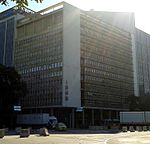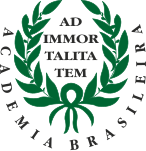Marina da Glória
2016 establishments in BrazilBrazilian sports venue stubsGuanabara BayOlympic sailing venuesSports venues completed in 2016 ... and 3 more
Sports venues in Rio de Janeiro (city)Summer Olympic venue stubsVenues of the 2016 Summer Olympics

Marina da Glória is a marina located in the neighbourhood of Glória in Rio de Janeiro, Brazil. This venue hosted the sailing events for the 2016 Summer Olympics within the Flamengo Park cluster, from 7 to 19 August 2016. and the 2016 Summer Paralympics. It also hosted the draw procedure for the Qualification for the 2014 FIFA World Cup.
Excerpt from the Wikipedia article Marina da Glória (License: CC BY-SA 3.0, Authors, Images).Marina da Glória
Avenida Infante Dom Henrique, Rio de Janeiro Glória (Zona Central do Rio de Janeiro)
Geographical coordinates (GPS) Address Phone number Website External links Nearby Places Show on map
Geographical coordinates (GPS)
| Latitude | Longitude |
|---|---|
| N -22.920277777778 ° | E -43.169722222222 ° |
Address
Marina da Glória
Avenida Infante Dom Henrique
22210-010 Rio de Janeiro, Glória (Zona Central do Rio de Janeiro)
Rio de Janeiro, Brazil
Open on Google Maps









